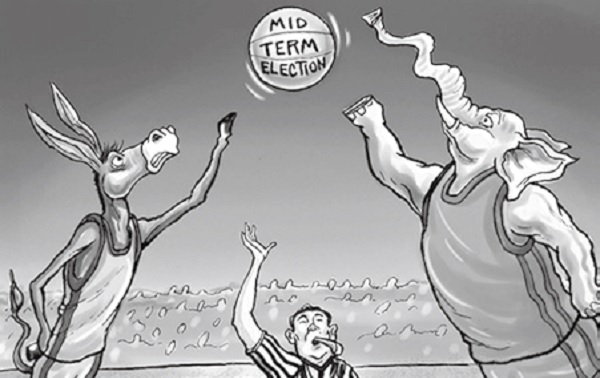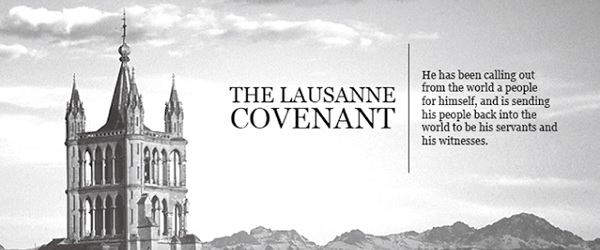How can the church avoid the crisis of being "hijacked by politics"?
[North America] Keep the kingdom of God in mind and vote prudently

The late Ronald Reagan, the most popular president of the United States in modern times, once said a thought-provoking statement:"If we forget that America is a nation under God's authority, then we will be a nation in decline."Reagan's words have a historical background. It was during the Cold War confrontation between the two major camps of democracy and freedom and communist totalitarianism in the United States and the Soviet Union. However, his words also pointed out the controversy that makes conservatives applaud and liberals applaud: There is a certain degree of tension and pull between American social politics and church beliefs.
On November 4, 2014, the United States held midterm elections, and the political arena was filled with excitement. The number of public servants up for election this time is extremely large, including 435 seats in the House of Representatives, 33 seats in the Senate, 38 seats for the governor, and 46 seats in the state assembly. The midterm elections will inevitably affect the 2016 presidential election, and all parties are ready to compete in the Central Plains with great fanfare. Christians are both citizens in heaven and citizens on earth. Elections provide an opportunity to reflect, rethink the relationship between the church and politics, and how to face elections, in order to exert a positive influence in society. This article is just an introduction to some macro-principles from a biblical and theological perspective, hoping to help Christians glorify God and benefit others and fulfill their civic obligations.

▲On November 4, 2014, the United States held midterm elections, and people from all political parties were ready to compete in the Central Plains with great fanfare. (Image source: http://si.wsj.net/public/resources/images/ED-AQ552_Sabato_G_20130318144343.jpg)
The basic principle of "separation of church and state"
How the church faces elections, "separation of church and state" is still a very pertinent reference principle. Although the concept of "separation of church and state" is not perfect, nor can it remain an abstract discussion, and requires efforts to maintain a balance in practice, basically, "separation of church and state" is in line with the biblical view and has long been affirmed by most churches.
The 2012 U.S. presidential election is a very relevant case, and lessons are not far away. "Warring States Policy" said: "Don't forget the past to be the teacher for the future." This presidential election can serve as a reference and vigilance for us to further reflect on the relationship between "separation of church and state" and the defense of pure faith, so as to avoid falling into extremes. This may prevent us from falling into the crisis of "the church being kidnapped by politics." (Please read my article "Render to Caesar what is Caesar's" for details, "Preach" magazine, January 2013)
The 2012 U.S. presidential election was a highly dramatic election. Obama admitted that he was a Christian, but he strongly supported abortion, homosexuality, and gay marriage; on the contrary, Romney was a Mormon, but firmly opposed to abortion and homosexuality. , support traditional family marriage. For most devout and conservative Christians, this poses an extremely paradoxical dilemma.
There are three things worth noting: 1. As the election campaign was stalemate, the Graham Evangelistic Association agreed to Romney’s request to meet with Pastor Graham on October 11; 2. After the meeting, the official website of the Evangelistic Association immediately removed the list of Mormons Cult articles; 3. On November 18, the evangelistic group launched a series of advertisements "Elect Biblical Values", calling on the national media in the name of Graham: "...vote our votes for candidates who are based on biblical principles and support Israel." People. I urge you to vote for candidates who protect life and support marriage between one man and one woman as defined by the Bible..." Although he did not name anyone, the intention of calling for support for Republican Romney was clear, and Pastor Graham was so involved. got into the turmoil of political and religious debates.
Pastor Graham behaves prudently, does not favor any political party, and faithfully promotes a biblical worldview and values throughout his life, which is admirable. The removal of the article "On Mormonism is a Paganism" has caused the church and the truth to be hijacked by politics, which makes people sigh! In the end, Romney lost the election. Wouldn’t it make people feel that he lost his wife and lost his army?
In the 2012 presidential election, devout Christians could reject Mormonism and still vote for a Mormon candidate. The "government" given by God to Caesar and the "religion" given by God to believers certainly belong to God, each has its own responsibilities and functions, and both are under God's authority. If we truly understand the principle of "separation of church and state," Christians can be more effective in caring about politics without being hijacked by politics. If God is merciful, there will be a godly president, but regardless of whether the president is godly or not, never place your hopes for the kingdom of heaven on the president.

▲In November 2012, the Graham Evangelistic Association launched a series of advertisements titled "Choose Biblical Values." Although he did not mention anyone by name, his intention to call for support for Republican Romney was clear. As a result, Pastor Graham was involved in the controversy between politics and church. (Image source: http://mariomurilloministries.files.wordpress.com/2012/10/billy-graham-ad.jpg)
Gospel Mission and Social Care Mission
The church, as the body of Christ, takes on many different aspects in different church traditions. The more traditional and conservative churches emphasize evangelism, but are weak on social care. On the contrary, churches with liberal and open stances generally adopt different approaches, emphasizing social care, but weak on evangelism.
The evangelical church has had a well-balanced reflection on this issue. At the World Mission Conference held in Lausanne, Switzerland, in 1974, church leaders took the lead in signing the Lausanne Covenant, in which Article 5, "Christian Social Responsibility," was quite thoroughly elaborated:
“…Although reconciliation with others is not the same as reconciliation with God, social concern is not the same as evangelism, and political liberation is not the same as salvation, we are convinced that both evangelism and sociopolitical concern are ours as Christians Responsibility. … The salvation we profess should transform us in every aspect of our personal and social lives.”
Because Christians need to shoulder the mission of social care, we must pay attention to the political opinions and positions of political parties and candidates, test the candidates' positions and opinions based on biblical truth and interpretation, and then decide how to vote. Issues that concern everyone, such as poverty and economic justice, judicial fairness, equality of life, educational opportunities, marriage and family, ecological environment, freedom of belief, etc., all need to be carefully distinguished. Many political opinions have nothing to do with right or wrong, but some are incompatible with the truth, so naturally we need to be more cautious. Generally speaking, if the church is rooted in pure biblical truth, it usually cares about three important issues, namely life, sex and marriage. In other words, it protects the right of the fetus to survive, maintains sexual chastity, and maintains the tradition of one man and one woman. Marriage, from the standpoint of the Bible and faith, has no room for compromise.
Legally speaking, as a non-profit organization, churches cannot endorse specific candidates. However, many churches still provide election guidelines to their members. Although this is a good intention, it always seems to be true. Therefore, we must think twice about how to distinguish the difference between the social mission of the church and believers.

▲The "Lausanne Covenant" issued by the First World Mission Conference is the most influential document of the modern evangelical church. (Image source: http://cdn.theresurgence.com/files/2011/10/26/thelausannecovenant.jpg)
The Social Mission of the Church and Believers
Both "Christian churches" and "individual Christians" have social missions, but their mandates are different and must be clearly distinguished. This distinction is extremely important and should not be confused.
First, individual Christians can have political affiliations. Pastor Tang Chongrong once proposed three principles, which are of reference value. First, every Christian should have a political stance and take political responsibility to show that he is a responsible citizen. Secondly, Christians have a personal freedom to have a political stance and cannot be interfered with by others. Third, the freedom of each person cannot force the entire church to follow his freedom...
In contrast, churches are not allowed to presuppose political positions, and are not suitable to publicly support specific political parties or candidates. This not only violates the basic principle of "separation of church and state," but also violates U.S. legal requirements for non-profit groups.

▲Christians should use the truth and interpretation of the Bible to test the candidates’ positions and views and cast a sacred vote. (Image source: http://www.womenofgrace.com/blog/wp-content/uploads/2013/02/voters.jpg)
Regarding the church’s participation in social care and public policy, the famous theologian Carl FH Henry elaborated on five major principles, which are very inspiring and helpful to future generations:
1. The relevance of the Bible:The Bible remains fully relevant to twenty-first-century life and culture, including issues in the social and political realms.
2. Non-church mission:As an institution established by God, the church does not have the "mission, jurisdiction, or ability" given by God on political, legislative, military, economic and other issues, and it cannot exercise its right to speak arbitrarily in the name of Christ.
3. The mission of the church:As an institution established by God, the church has the responsibility given by God to preach the complete revelation of the Bible, including various commandments and standards, which are the basis for future judgment whether individuals or countries, and must also be dignified in this world. Live a godly life and try your best to maintain social harmony and stability.
4. Personal responsibilities of believers:Promoting social progress through political operations is the responsibility of every citizen. Therefore, "Christian individuals", not "church groups", should actively participate in politics and fulfill their responsibilities within the scope of personal abilities and opportunities.
5. Authority of the Church and Government:According to the teachings of the Bible, God has regulated the proper scope of operations of the government and the church, and each has a clear purpose from God. The government exists to maintain social fairness and order; the church exists for moral and spiritual entrustment, to spread the gospel to the ends of the earth.
The church has a prophetic mandate. In response to human sin and social injustice, the church must correctly interpret the truth, preach it faithfully and boldly, and be impartial. This is the church’s unshirkable responsibility. A pastor does not need a political stage; what God has given him is the church pulpit. Every Sunday worship, there are hundreds of millions of pulpits around the world. God has appointed His pastors on them, commanding them to faithfully preach the way of repentance and forgiveness of sins, and to diligently watch and pray for the people. Believers have the office of priest. In daily life, believers should actively integrate into the social community and live out "a life of separation into the world" and "a life of transcendence from the world - a life of social concern". During the election, keep the kingdom of God in mind, watch, bless and pray for the country and society, and cast a sacred vote.

Author profile
Pastor Lu Shaochang is the president of Christian Worker Theological Seminary in California, USA. He once served as senior pastor of the Atlanta Church, provost and acting dean of True Evangelical Theological Seminary. Pastor Lu received a Master of Divinity and a Doctor of Philosophy from Trinity Theological Seminary. He is responsible for church pastoral care, cultivating leaders, and literary ministry. He is the author of "Commentary on the Book of Isaiah, Volume 1" and "Talking about the Earth and Heaven: Thoughts on Current Affairs". Kingdom of Heaven," among other scholarly works, and writes a monthly faith column in Preach magazine.
